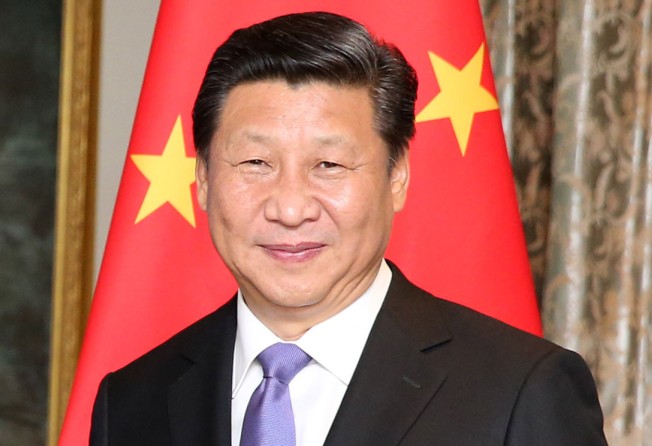Towards a new order, Xi Jinping touts Asia-Pacific dream
The Chinese president uses the Apec summit in Beijing to try to rally Asia-Pacific leaders around the idea of common progress and prosperity

Just two weeks after Xi Jinping came to power this month two years ago, he took six new members of the Communist Party's Politburo Standing Committee to the National Museum next to Tiananmen Square and said for the first time that the greatest "Chinese dream" was to "realise the great renewal of the Chinese nation".
He has repeated the slogan in key speeches since then, although he has been short on specifics on making the dream a reality. Understandably, this has led to worries over what it means for China's neighbours and other members of the international community.
But there have been clear signs that Xi is pursuing bold ambitions at home and abroad with an eye to setting up a new international order led by China, a rising superpower to compete with the United States.
At home, Xi has consolidated control more quickly than any other Chinese leader in recent years with an unprecedented anti-corruption campaign to shore up party rule and a radical overhaul of the economy to let market forces play a decisive role. Abroad, he has largely repudiated China's low-profile approach to international affairs by more deftly employing the carrot-and-stick approach to pursue its international agenda. Beijing has aggressively put down its markers in territorial disputes with it neighbours, but has also ramped up its investment and trade deals to make regional economies more tied to China.
So it was timely that he marked his second anniversary in power by playing host in Beijing to US President Barack Obama and other leaders at the 21-economy Asia-Pacific Economic Cooperation summit.
As Xi unveiled a series of economic, environmental and other initiatives, China also showcased its first serious attempts to exert leadership in the Asia-Pacific.
On the eve of the summit, Xi purposely invited heads of governments from some of China's neighbours to Beijing, where he announced a US$40 billion Silk Road fund for regional infrastructure, a massive project aimed at reviving historical trade routes between China and other Asian countries. This followed the announcement last month of the establishment of the China-led Asian Infrastructure Investment Bank.
At the Apec meeting, Xi further staked out China's claim as the regional leader by, for the first time, calling for the fulfilment of the "Asia-Pacific dream" of common progress, development and prosperity.
Beijing and Seoul last week concluded a wide-ranging free-trade deal and Australia is on the verge of doing the same with China.
At the end of the Apec summit, China upped the ante by overcoming US opposition to unveil its plan for a Chinese-led free-trade framework to encompass all of the Asia-Pacific as a counter to a narrower US-led Trans-Pacific Partnership, which does not include China.
On the summit sidelines, Xi and Obama also had more than 10 hours of intensive talks, which produced a flurry of deals, including a ground-breaking commitment for both countries, the world's biggest polluters, to cut greenhouse emissions.
It is little wonder that state media went into overdrive to hail the significance of China's initiatives and to portray Xi as a world leader. People's Daily said the Apec agenda showcased Beijing's leadership, signaling that "the centre of world power is shifting towards the east".
It even went so far as to suggest that when Xi hosted a lavish dinner for Apec leaders at the futuristic Water Cube aquatics centre, it was reminiscent of China's feudal heyday when heads of dependent states and allies came to Beijing to pay their respects to the emperor.
The reference was later deleted but not before many observed that the dinner was served on the kind of imperial yellow porcelain that would have once been reserved for the royal household.
Curiously enough, Chinese censors, who used to be very guarded about articles comparing Xi with a feudal emperor, or any article overplaying China's strength, have allowed the latest Time magazine cover story headlined "Emperor Xi" to circulate on the internet.
But the smog is fast returning to Beijing with the end of drastic limits on car use and the resumption of polluting factories following a week of "Apec blue" skies.
Xi has an uphill battle to meet rising public expectations about the environment and to put the economy on a path to sustainable growth. But for the moment he deserves kudos for attracting the world's attention to the Chinese dream and the Asia-Pacific dream.